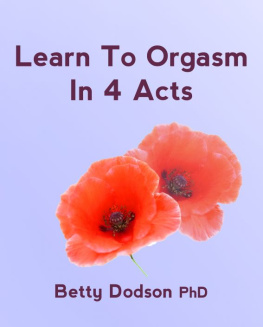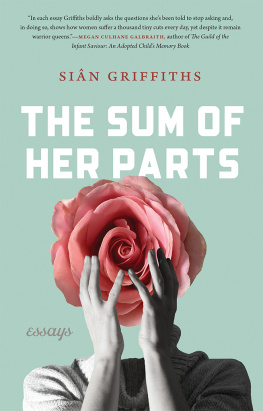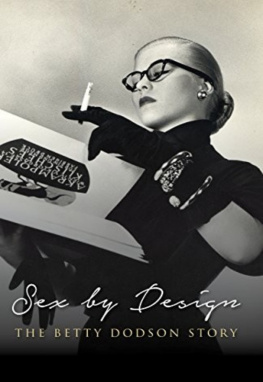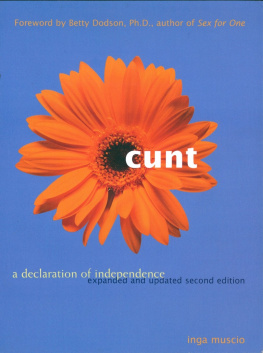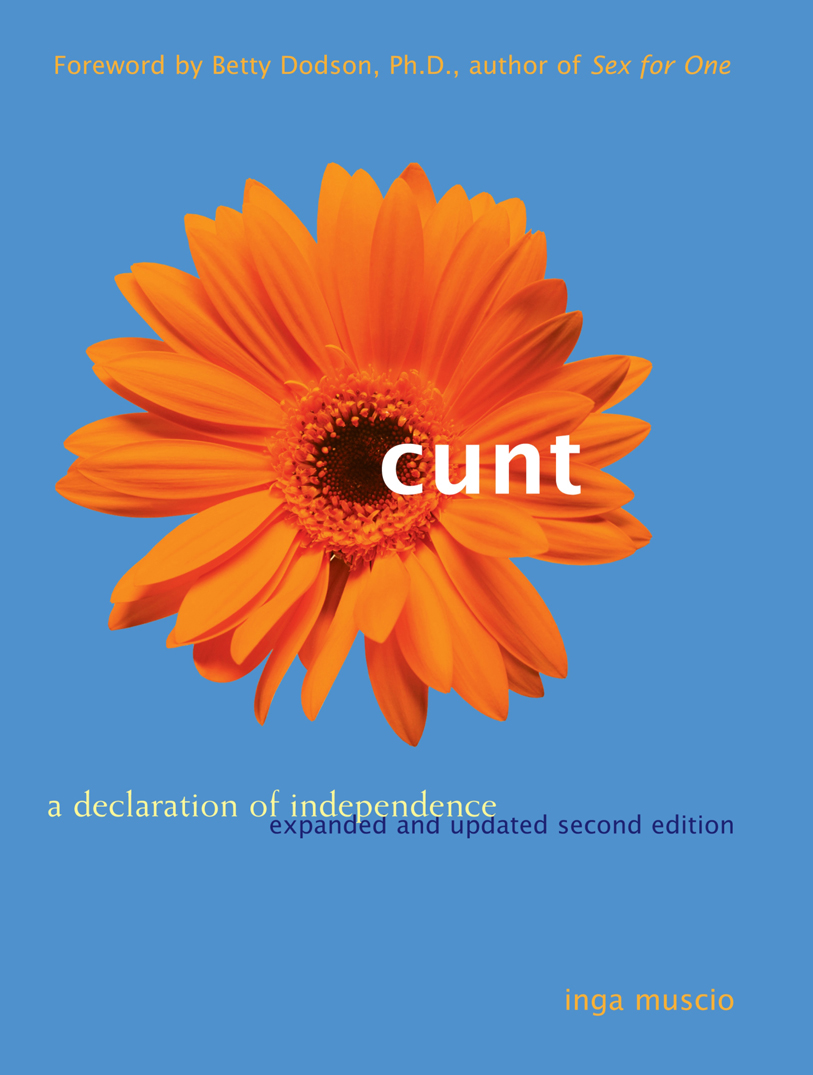
CUNT: A Declaration of Independence
2002 by Inga Muscio
Foreword 2002 by Betty Dodson
Introduction 2002 by Derrick Jensen
Published by Seal Press
A member of the Perseus Books Group
1700 Fourth Street
Berkeley, CA 94710
All rights reserved. No part of this book may be reproduced or transmitted in any form without written permission from the publisher, except by reviewers who may quote brief excerpts in connection with a review.
Credits are listed on page 365, which constitutes a continuation of the copyright page.
Library of Congress Cataloging-in-Publication Data
Muscio, Inga.
Cunt: a declaration of independence / Inga Muscio.
p. cm.
Expanded and updated 2nd ed.
Includes bibliographical references (p. 357-364).
1. Women. 2. WomenSocial conditions. 3. Women--Psychology. 4. Women--Identity. 5. Body, HumanSocial Aspects. 6. Sexism in language. 7. Feminism. I. Title.
HQ1233 .M87 2002
305.4--dc21
2003267081
ISBN-13: 978-0-78675-051-1
15 14
Cover design by Rachel Ramstad and Ingrid Emerick
Interior design by Maren Costa
Printed in the United States by Berryville Graphics
Distributed by Publishers Group West
In Loving Dedication:
To everyone with Cuntlove in their hearts, especially my Sacred Mother.
I thank you for giving me life.
Contents
Guide
Contents
Authors Note
Unless otherwise stated, throughout this book the words gentleman, man and the like are used to refer to the tightly knit, male social power structure as it is recognized in American patriarchal society.
Let it be known that the author is fully cognizant of the fact that many men in this world strive for womens rightful place in society. Without the work, study, love and support of certain members of the male sector of humanity, this book would not have been as thoroughly articulated as it was.
The author is grateful and indebted to many members of this sector of humanity, both living and dead, of which her loving father, brothers, nephews, Malcolm X and Robert Graves are merely six.
The author would also like to acknowledge that masculine and feminine nouns and pronouns impose unrealistic limitations on lived human experience. The author looks forward to the time when our vocabulary reflects the reality and complexity of our multi-gendered human nature.
All that said, the author continues to be free to talk some serious shit.
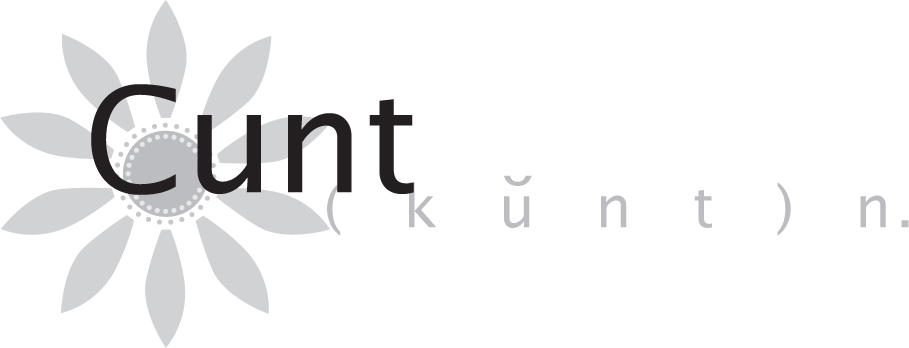

A friend sent me a book with a note that said, Dodson, youre gonna love this woman. The bright yellow cover had a pink daisy with cunt written in its center. I dropped the book into my handbag to read on my trip to San Francisco the following day.
The plane landed before I knew it. My nose was buried in this bold, brave declaration of independence written by a young woman named Inga Muscio, who was surely my spiritual granddaughter.
Over the next four days, during business meetings and social dinners, I kept asking friends about the author who had the guts to title her book Cunt. Did anyone know her? The book jacket said she was a recluse, but I figured a cuntlovin woman like me could get through to her. I left my phone number with her publisher, knowing everyone comes to New York City at some point.
Although Inga and I span two generations of feminism, we share a lot in common. Both of us embrace the old Anglo-Saxon noun, cunt, that claims the innate power of the sex organ it names.
In my first book, Liberating Masturbation, which was self-published in 1974, I had a chapter titled Becoming Cunt Positive followed by sixteen full-page pen-and-ink portraits of my friends cunts. Inga begins Cunt by informing us about her reconciliation with the word and the anatomical jewel it names. She points out that when popes or politicians refer to female genitalia, the term vagina is discreetly engaged. She writes that the word originated from a term meaning a scabbard or sheath for a sword, and rightly concludes, Aint got no vagina.
From the nineteen-sixties to the present day, I have objected to the term vagina because it refers to the birth canal and leaves out the clitoris, the primary source of womens sexual pleasure. As a budding feminist author in the seventies, I was furious to discover the vast number of women struggling, and mostly failing, to have an orgasm from penis/vagina intercourse and blaming themselves. I proclaimed that frigid is a mans word for a woman who cant have an orgasm in the missionary position in a few minutes, with only the kind of stimulation thats good for him.
Among the many things that excited me about Cunt was how it took me back to my feminist awakening. My perspective was grounded in the sexual revolution of the sixties and seventies. Abandoning marriage and monogamy and claiming my sexuality radically altered my life. This new feeling of empowerment gave me the courage to have the first one-woman exhibition of erotic art in New York City. I began writing articles and speaking out about the importance of women embracing masturbation so we could develop and define our own sexuality. I designed a workshop I called Physical and Sexual Consciousness Raising. My feminist commitment evolved into helping women learn to become orgasmic by experimenting with different forms of clitoral stimulation. I ended up leaving my art studio for what became a twenty-five-year career running masturbation workshops.
Inga is a product of the eighties and nineties, when many mainstream feminists wanted to censor pornography and the anti-violence movement merged with an anti-sex movement. My worst fear while reading Cunt was that Id be engulfed in a PC feminist rant, an anti-sex diatribe focused on ending violence against women. But I discovered that Ingas adamant anti-rape stand was not anti-sex. Instead, she offered ways for women to deal with rape beyond impotently stomping our feet, hating sex and blaming men.
I silently cheered when she said we needed to learn self-protection, suggesting practical techniques for protection like the one she uses for dashes to the store late at night: she calls a friend to let her know she is going out, puts rocks in her pocket, jumps on her bike and goes. For me, the best part about studying martial arts and self-protection in the seventies was learning to avoid dangerous situations in the first place.
I have observed the womens movement for the past forty years, and weve routinely avoided the subject of sexual pleasure. From Women Against Pornography to the current V-Day campaign to end violence against women and girls, sex continues to be equated with violence. As if ending violence for biological women alone could ever change anything.
Every Valentines Day, the one day that celebrates lovers, the Vagina Monologues, which spawned V-Day, is performed around the world. Yes, we can say its a beginning. Or we can say that the good old boys have thrown us another bone. The adorable Dr. Ruth saying penis or vagina or sexual arrrrrrousal entertained us, but merely saying the words publicly provides no new information that improves our sex lives. I tend to question anything or anyone that gets corporate sponsorship, for it wouldnt get corporate sponsorship if it truly challenged the status quo. Corporate feminism is a far cry from the early feminist movement of the seventies. Back then we sat in a circle, which broke through the traditional model of a leader or expert standing in front of a group. We shared the truth about our lives, making I statements instead of giving advice. As we spoke, we began to realize that how we were living was indeed the result of the current political climate. This new awareness gave rise to the powerful feminist statement of the seventies, The personal is political. Unfortunately, this brilliant concept has rarely been applied to our sexuality.



